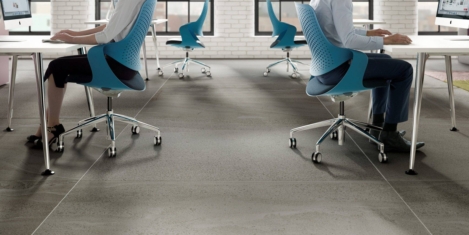May 16, 2017
Pay levels are falling but job market remains robust, despite Brexit relocation plans 0
 The UK economy is about to be hit by a fall in basic pay awards and real wages warns the CIPD, which has found that employers’ median basic pay expectations in the 12 months to March 2018 have fallen to 1 percent compared to 1.5 percent three months ago, which is lower than at any time during the past three and a half years. The findings from the latest CIPD/The Adecco Group Labour Market Outlook survey are consistent with recent Labour Market Outlook reports, which have indicated a slowing in the rate of basic pay growth, and with official labour market data. The report also found that 12 percent of private sector firms say the UK’s decision to leave the European Union has led them to consider relocating some or all of their business operations abroad. Popular relocation destinations include the Republic of Ireland (18 percent), Germany (17 percent) and France (13 percent).
The UK economy is about to be hit by a fall in basic pay awards and real wages warns the CIPD, which has found that employers’ median basic pay expectations in the 12 months to March 2018 have fallen to 1 percent compared to 1.5 percent three months ago, which is lower than at any time during the past three and a half years. The findings from the latest CIPD/The Adecco Group Labour Market Outlook survey are consistent with recent Labour Market Outlook reports, which have indicated a slowing in the rate of basic pay growth, and with official labour market data. The report also found that 12 percent of private sector firms say the UK’s decision to leave the European Union has led them to consider relocating some or all of their business operations abroad. Popular relocation destinations include the Republic of Ireland (18 percent), Germany (17 percent) and France (13 percent).















 It is two years since the introduction of Shared Parental Leave (SPL), where couples were given the ability to share leave surrounding the arrival of a new addition to their family; and while sharing leave is seen to have a profound beneficial impact for the family, there are still plenty of barriers. According to
It is two years since the introduction of Shared Parental Leave (SPL), where couples were given the ability to share leave surrounding the arrival of a new addition to their family; and while sharing leave is seen to have a profound beneficial impact for the family, there are still plenty of barriers. According to 




 Accommodation and food services, manufacturing, and transport industries will be hardest hit by limits on movement of EU and non-EU workers following Brexit, a new report has claimed. The latest edition of Mercer’s
Accommodation and food services, manufacturing, and transport industries will be hardest hit by limits on movement of EU and non-EU workers following Brexit, a new report has claimed. The latest edition of Mercer’s 








April 12, 2017
Research shows how the gender pay gap can be directly related to motherhood 0
by Sara Bean • Comment, Flexible working, News, Workplace